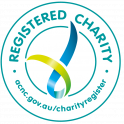During the pandemic, a new layer of elder abuse emerged to add to the complexity of the elder abuse issue. This put added strain on elder abuse support services around the country. Has the pandemic ended? Has elder abuse declined since COVID19? In this article we share insights into:
- What is elder abuse?
- What was the new layer of elder abuse during COVID19?
- Has elder abuse declined since the pandemic?
- Services to help you find a solution to elder abuse
Armed with this information, you will be better equipped to understand the risk of elder abuse, and to seek help and take control again.
What is elder abuse and elder abuse support services?
Elder abuse support services help older Australians to recognise elder abuse, and supports them to take control and end the abuse. One focus may be to restore safe and harmonious relationships with family.
But what is elder abuse?
Seniors Rights Victoria put it this way: Elder abuse is any act which causes harm to an older person and is carried out by someone they know and trust. Abuse is usually intentional.
The abuser may be a family member, friend, neighbour or carer. The harm caused can include verbal harassment, emotional harm, serious and deliberate physical injury, sexual abuse, neglect, or financial loss including the loss of a home and belongings.
The older person may be dependent on the abuser, for example if they rely on the abuser for care. It is also common for the abuser to depend on the support of the older person, for example for accommodation. Sometimes, there may be a co-dependent relationship where both the older person and the abuser depend on each other.
What was the new layer of elder abuse during COVID19?
Despite the quality of elder abuse prevention services in Melbourne, during COVID19 the risks of elder abuse were reported to have increased significantly.
The emerging problems due to social isolation and the need for older Australians to remain safe, meant some were moving in with their adult children. It was the option some older Australians took to avoid increased anxiety and trauma through isolation. Some remained homebound during COVID19. It may also have meant that the older person’s carer became their only means of connection to the outside world. For those in aged care facilities, it meant that they were unable to see loved ones due to ongoing lockdowns.
Also, with organisations being unable to complete home visits, routine assessments were unable to be conducted, which reduced the visibility of elder abuse. There were also situations where the carer used the opportunity to restrict any connections to services, thereby taking control of the older person’s situation. This greatly limited the ability for specialists to detect any elder abuse occurring in the home, such as an older person being coerced and controlled.
Risk factors that increased in the context of COVID19 for older people included social isolation, decreased access to health care and exercise, increased reliance on and use of technology, and vulnerability to financial exploitation. Increased reliance on carers who use the opportunity to breach the trust.
For example, an older person asking their carer to make an ATM withdrawal because they were fearful of COVID19 exposure if they went to the bank themselves.
To read the Better Place Australia elder abuse support services article on “What elder abuse looks like during a pandemic”, click here.
Ageism is also a contributor. In a Victorian government report it stated, “Ageism was evident in media coverage (how we think, feel and act towards others or oneself based on age); There were ageist policy responses such as ‘herd immunity’; Older people were being denied life-saving medical care due to their age; and other issues.”
Has elder abuse declined since the pandemic?
The problem with this question is, many people look at the pandemic as having ended. Specialists say otherwise. Mandy Strange, Better Place Australia Clinical and Program Lead for Elder Services, says, “People are looking at COVID19 as having a finite end, but pandemics don’t work like that. It’s a lack of acknowledgement of the ongoing and physical effects of COVID19.”
Mandy explains, “People have become use to a new normal. For example, the impact on the pandemic meant some adult children losing jobs, moving back in with their parents, becoming financially reliant, and it is still that way.
“There is still social anxiety around COVID19, and this impacts aged care facilities. Rolling lockdowns mean that there are still cases occurring in aged care across Victoria. The media and general public aren’t thinking about the continuing effect on aged care facilities anymore, which is an ageist response.
“When you reduce an older person’s function, mobility, exercise and the like, they may end up with physical deficits. Those people who weren’t leaving their home, weren’t exercising, weren’t getting out and about, weren’t going to routine appointments, so there was no preventative health care. As a result, their level of health wasn’t able to be maintained during the pandemic and they may have incurred ongoing physical issues.
Ambulance Victoria were getting called for more serious heart attacks because people weren’t getting checked earlier,” explained Mandy.
The mental health impact of the pandemic has also continued for the older person and their children. There is a delay in necessary support. For example, the aged care assessment service currently has a 12-month waiting list. There is also a lack of acknowledgement of the ongoing and physical effects of COVID19 on older people and families.
Better Place Australia can support you if you, or someone you know, is experiencing elder abuse
Better Place Australia is a not-for-profit organisation with the mission for an Australia where all people experience positive relationships, truly value each other, and live safer, more confident lives. Being government funded, Better Place Australia offers a free service to older Victorians experiencing elder abuse.
If you are concerned about someone else or you think you may be experiencing elder abuse, contact Better Place Australia about their professional Elder Abuse Prevention Services in Melbourne. Call 1800 214 117, or click here to send an email.
Get Support
Please make an enquiry if you would like to book an appointment for one of our services. Alternatively, you can live chat with us during business hours.






